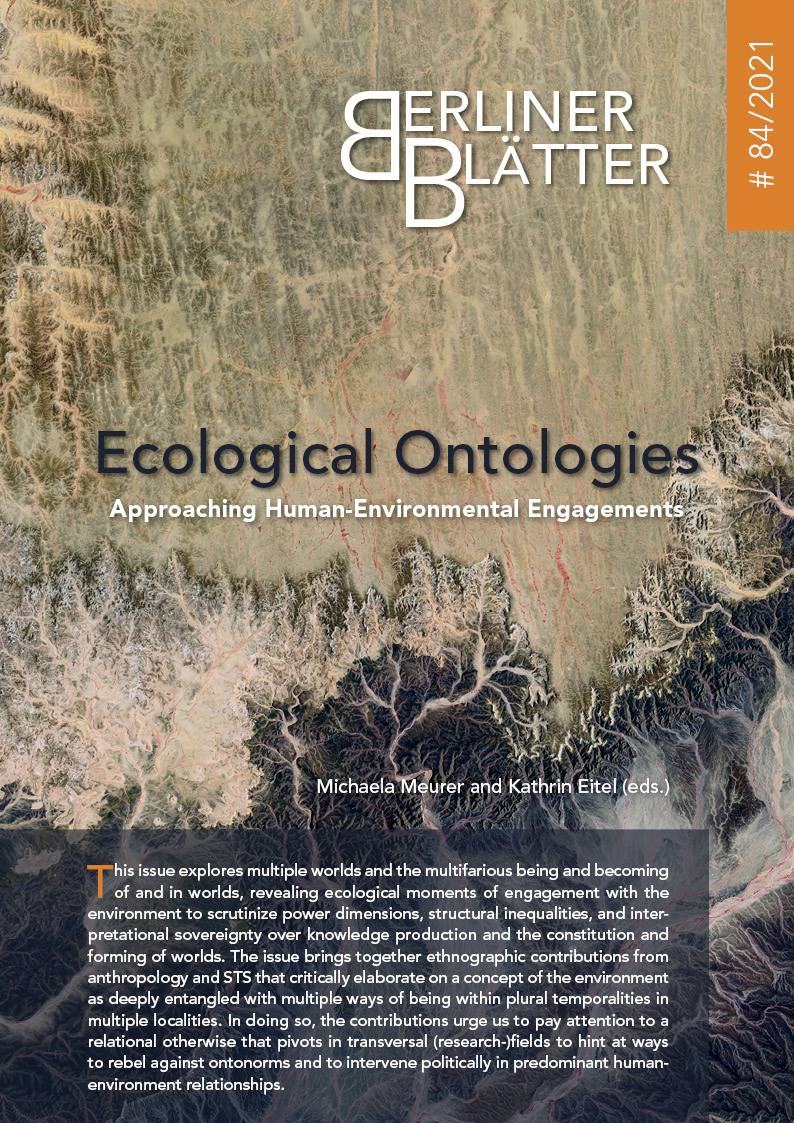Rethinking Political Ontology
Notes on a Practice-Related Approach and a Brazilian Conservation Area
Keywords:
Political Ontology, Plural Ecologies, Brazil, Co-Management of Natural Resources, Extractive Reserves (Resex)Abstract
For a critical discussion of power asymmetries within the co-managed protection of natural resources, political ontology offers a valuable theoretical framework. Relevant studies demonstrate that sustainability cannot be determined ‘objectively’ but is deeply entangled with, and dependent on, the specific ontological constitutions of worlds. However, my case study within the Brazilian conservation area Resex Tapajós-Arapiuns also reveals the limitations of a political ontological approach, as the framework cannot completely contend with the fragmentation of social collectives and the ontological plurality of everyday enactments. Demonstrating that this blind spot is the effect of a specific analytical perspective, I argue for a practice-related reformulation. Illustrated with the empirical data of my case study, I propose the adoption of three concepts for a practice-related political ontology, namely plural ecologies, ontological consequences, and contextual assumptions.
Downloads
Published
Versions
- 2021-06-21 (2)
- 2021-06-21 (1)
How to Cite
Issue
Section
License
Copyright (c) 2021 Berliner Blätter

This work is licensed under a Creative Commons Attribution-NonCommercial-ShareAlike 4.0 International License.








